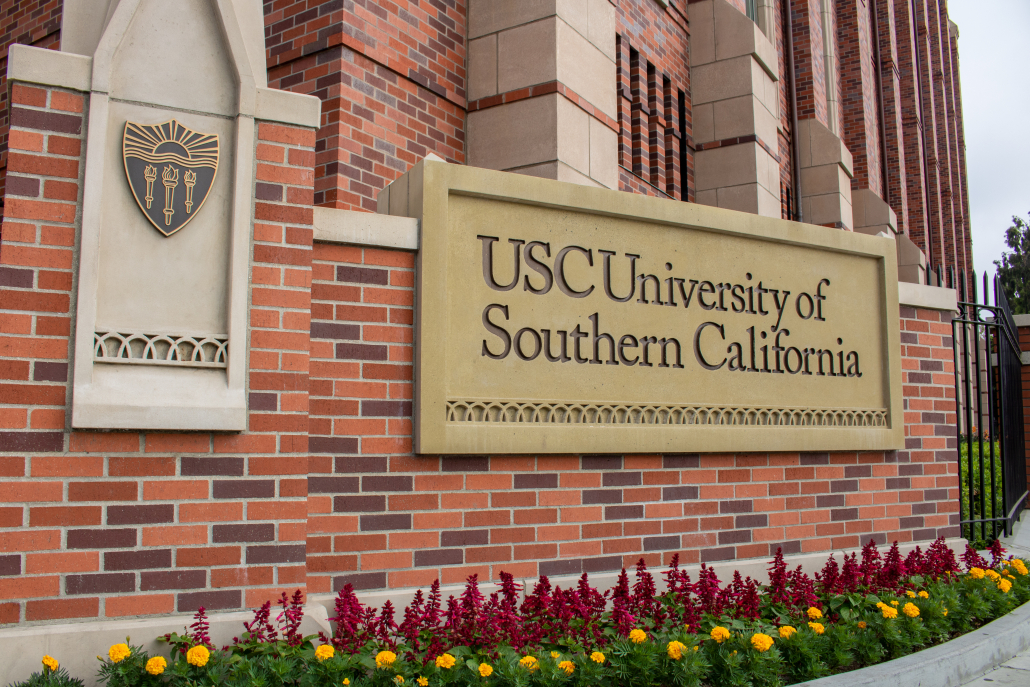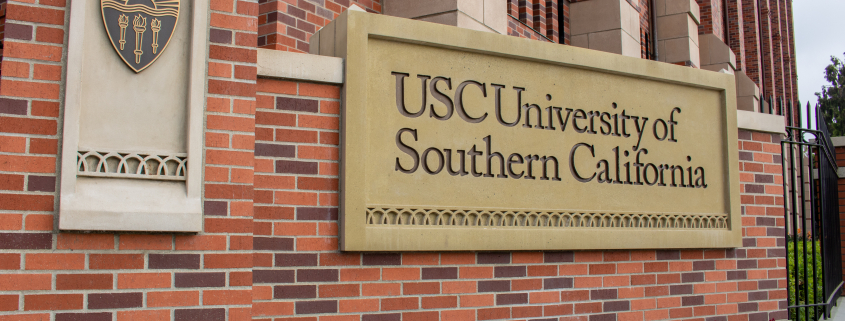Lunar New Year posts spark controversy

Content warning: This article contains discussions of racial slurs and threats of violence.
Feb. 1 marked the first time in 19 years that Black History Month and the Lunar New Year began on the same day.
USC Communications saw it as an opportunity to celebrate the intersection of Black and Asian cultures. The department reached out to MixedSC, a registered student organization dedicated to the “multicultural and multiethnic community at USC,” seeking to collaborate on social media posts showcasing diverse perspectives.
Kiara Nguyen, a senior majoring in psychology and NGOs and social change and co-director of events at MixedSC, accepted the offer.
“I thought it was a cool opportunity to speak about my experiences, especially in light of recent events — the pandemic, [the Black Lives Matter movement],” Nguyen said.
Instead, she found herself the face of heated controversy. She recorded and posted several videos on the University’s Instagram story as part of an “Instagram takeover.” Two of her posts specifically caused controversy, including one where she stated that the term “Chinese New Year” is incorrect — which some interpreted as an attempt to erase the holiday’s Chinese origins. Another, taken at a MixedSC meeting Jan. 31, showed a slide projecting the word “Chinese” in “Chinese New Year” struck through in red and replaced with “Lunar.”
“I misspoke,” Nguyen said. “What I was trying to explain was that Lunar New Year was an inclusive term. You wouldn’t say ‘Happy Chinese New Year’ to your non-Chinese Asian friends.”
Viewers also took issue with Nguyen, who is half Black and half Vietnamese, stating that lì xì — a colloquial name for red envelopes given out during the Lunar New Year, derived from Cantonese — was a Vietnamese term.
“In Vietnamese, it’s called lì xì,” Nguyen said. “That’s what I call it in Vietnamese, and what Vietnamese people call it.”
After she faced backlash over the post, Nguyen apologized and clarified under the University’s Instagram post that announced the takeover event.
“I want to be clear that if you are speaking to someone who is Chinese, calling it Chinese New Year would be correct,” she wrote.
The post’s comment section, Nguyen’s personal social media and her email flooded with comments and messages ranging from constructive criticism to hate speech — which only intensified as clips of Nguyen’s posts spread to TikTok.
Gabby Jia, a USC alumna, said she and many others in her community found offense in Nguyen’s assertion that using the greeting, “Happy Chinese New Year,” is “incorrect,” and said the University should have more carefuly reviewed the content before posting.
“The @uscedu account has a huge number of people — people going to USC or not,” Jia said. “[It’s] always the partial responsibility of the school to review the things [Nguyen] is about to say, especially the exact words that … she is about to share. I understand there is freedom of speech, but the [University] should try and do something to avoid controversy.”
Peijean Ward, another USC alumna, said she understood Nguyen didn’t mean offense, but that, nonetheless, the statements “touched a lot of nerves.”
Ward herself took issue with the University’s treatment of Asian culture as a “monolith.”
“If you were to do something about Lunar New Year … you can talk to people from different Asian cultures who celebrate Lunar New Year, rather than assume that, ‘Hey, if we just use the term “Lunar New Year,” we can catch everybody,’” Ward said.
A junior majoring in business administration and a MixedSC member who wished to remain anonymous for fear of harassment, said she attended the Jan. 31 meeting and said the slides presented on Nguyen’s Instagram takeover were “misconstrued.”
“What she meant to say was that ‘Lunar New Year’ is overall a more inclusive term,” the MixedSC member said. “[It’s] not just people of Chinese heritage [that] celebrate the new year. It’s also Vietnamese people, Korean people.”
The USC Chinese Students and Scholars Association started a Change.org petition Feb. 5 to “Readdress USC’s Inaccurate Annotation on Chinese New Year.” The petition, in addition to taking issue with Nguyen’s statements, stated that the red strike-through Nguyen used in the presentation was offensive in Chinese culture, and that the University disabled comments on their post to silence those who were “simply trying to reason with the original post.” The petition accumulated more than 3,800 signatures at the time of publication. CSSA did not respond to multiple requests for comment by the Daily Trojan.
Nguyen received various racist, offensive and threatening messages in her inbox — which were obtained and confirmed by the Daily Trojan — calling her the n-word (and its Chinese equivalent), and other racist, derogatory names. Others discredited her for not appearing Asian, with one Twitter user accusing her of “talking about Asian culture without an Asian face.”
An email Nguyen received Feb. 4 concluded with a threat, reading “I truly suggest you take responsibility for your mistakes and show a humble and acknowledged [sic] attitude; otherwise, you may be revenged by … me and others one day. Keep that in mind. You are now a hot target to our whole Chinese group from the whole world.”
Nguyen said she believes she would not have received the level of hate she did if she were not half Black.
“It’s always ‘Black people are playing the victim’ when they talk about injustices,” Nguyen said. “It’s been … frustrating to see people denying the fact that I’m being called slurs, and also denying my identity as an Asian woman. As a mixed-race person, I’ve had to deal with the invalidation so often — I’m tired at this point.”
The MixedSC member said she agreed “that [Nguyen] probably would not have received the same reaction” if Nguyen were not half Black.
“As a mixed person, you’re constantly being told that you’re not enough of one group,” the MixedSC member said. “And when she’s speaking on the Asian experience, of course people are going to look at her and they’re going to think, ‘You’re Black, what do you know about it?’”
In a statement to the Daily Trojan Feb. 8, Senior Vice President and Chief Communications Officer Kyle Henley wrote that the University did “not intend to disrespect the Chinese community or its important holidays and traditions in any way,” though “some of the language used in the social media posts unintentionally fell short.”
In response to the CSSA petition’s claims on disabling comments, Henley said that the University turns off Instagram comments when “there are posts that violate Instagram community standards,” adding that the majority of comments “appeared to come from parties external to the university.”
Henley posted a statement on the @uscedu Instagram account Feb. 11, apologizing for “language … that was interpreted as disrespecting the Chinese community, which is an integral and dynamic part of the Trojan family.”
“We will absolutely work to do better going forward,” Henley wrote.
Henley also expressed regret that Nguyen “has been the target of harassment.”
“While it appears that much of this came from outside of our USC community, harassment is never appropriate and runs counter to USC’s core values,” Henley wrote.
Jia said she believes the University’s apology was insufficient, and that the University should “look [at] another side of the story, especially for the Chinese community.”
“It will be great if the [University] can have multiple people take over [its Instagram] stories, each one of them taking one short story like, ‘What is the tradition in my hometown?’” Jia said. “Something like that would be really respectable.”
Ward said she believes the controversy to be a learning opportunity for her and the community as a whole.
“I really hope this opens conversations and discussion,” Ward said. “I cannot even say I know absolutely everything about Chinese New Year, despite the fact that I grew up in this culture. I still learn about it from [other] people who celebrate … We just need to always be learning and listening to each other — that’s how it’s gonna get better.”

